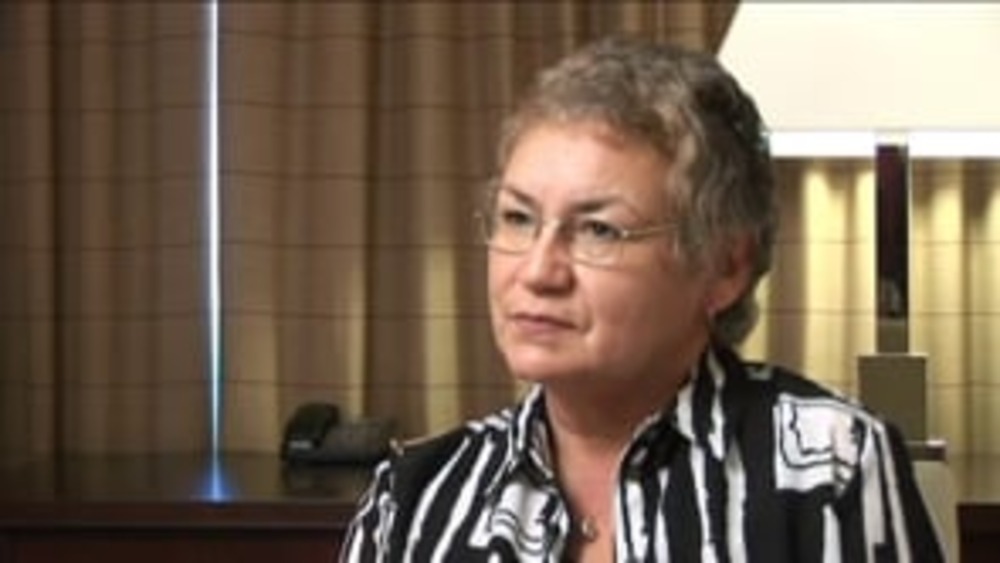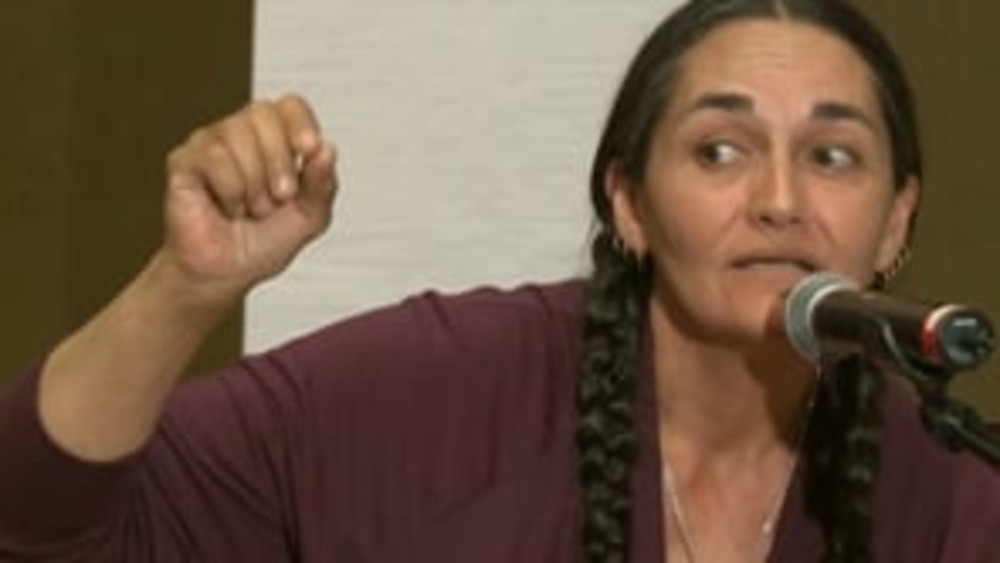Gwen Phillips, Director of Corporate Services and Governance Transition with the Ktunaxa Nation, discusses how Ktunaxa people gained a sense of Ktunaxa identity and belonging traditionally, and the different criteria that Ktunaxa is considering including among its citizenship criteria today.
Additional Information
Phillips, Gwen. "Reforming the Ktunaxa Nation Constitution: What We're Doing and Why." Tribal Constitutions seminar. Native Nations Institute for Leadership, Management, and Policy, University of Arizona. Tucson, Arizona. May 1, 2012. Presentation.
Transcript
“But as a nation in our treaty making, in our self-government expressions, and even prior to assertion of those things in a formal way, we’ve already said, ‘We don’t care about status and we don’t care about residency, that we as a nation will determine who are citizens.’ And so we’ve created a number of categories, one of which is a descendancy through blood. But another one is adoption and there’s another one that basically -- well, it’s kind of a quasi adoption. An adoption would be sort of the formal place. But there’s another one that’s a recognition clause, and it’s kind of in contention right now, because some of the elders, the real elders -- and I’ll talk about the people that were there 100 years ago -- they’ll tell us that, ‘Come, sit, let me talk to you.’ After a while -- and you were sharing these stories with us at the break -- pretty soon that person’s a Ktunaxa. They think Ktunaxa, they act Ktunaxa, they speak Ktunaxa, therefore they are Ktunaxa. That’s the old elders, and then you get the ones that were sort of in the residential school place and subject to a lot of racism and subject to a lot of racial-program criteria and all of the above, and they get kind of, ‘Uh, no, you’re white or you’re this or you’re that or the other.’ We’re coming back to that point of recognizing -- because of the loss of our language -- that it might be important for us to say, ‘Hey, you speak Ktunaxa, you want to speak Ktunaxa, you want to be a citizen?’ That we might actually tie something to the language ability, because we need people to speak, and if people see a privilege of being associated with us and are willing to actually be a keeper of that language, some of us are going, ‘I don’t care what color you are. If you will be an active keeper of the language, we will turn you into a Ktunaxa person.’ So there’s differences in opinion about what a Ktunaxa is, and as we describe strong, healthy Ktunaxa citizens, it doesn’t say anything about blood. It’s all about the way you behave, the things you do, the associations that you portray, etc.”



